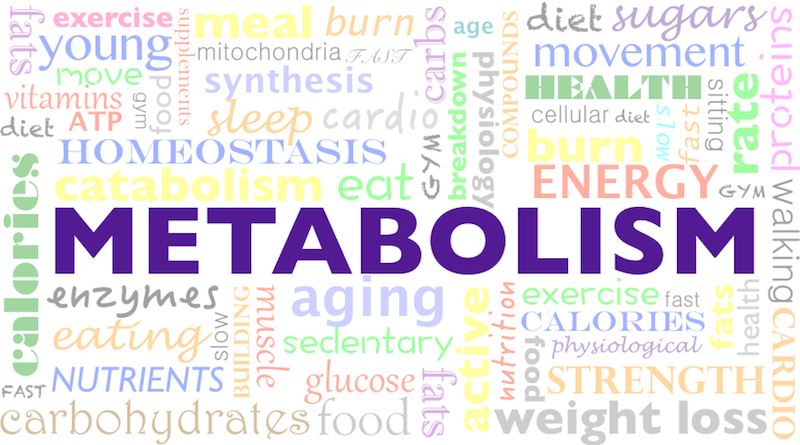Metabolism
A very well-known and basic, yet important function of our body is METABOLISM. With the word being thrown around so much, there’s good chance you might have taken this important aspect of healthy living, for granted. Today, let’s explore Metabolism and how it effects our health.
What is Metabolism?
In simple terms, Metabolism is body’s basic function of converting food into energy. During this complex biochemical process, calories in food and beverages are combined with oxygen to release the energy your body needs to function. Basal Metabolism Rate is the rate at which your body breaks down what you’ve consumed and utilizes it as energy. We shall come back to explore the impact of metabolism rate.
With the basic definition established, let’s understand the types of metabolic reactions that take place in the cell while our body performs this function.
Types of Metabolic Reactions
- Catabolism – Catabolism is a metabolic operation which involves the breaking down of larger molecules into simpler ones. It is also called the destructive metabolism, and a very good example is the breakdown of protein into amino acids. Catabolic reactions give out energy. They are exergonic.
- Anabolism – Anabolism is a constructive aspect of metabolism. During catabolism, energy is released, and this energy is used in the anabolic process, where smaller molecules come together to form larger ones. A good example of anabolism is the synthesizing of glucose. Anabolic reactions use up energy. They are endergonic.

Now, let’s get to the most important part of this discussion –
How does Metabolism affect Health?
What you eat has a major effect on your body’s metabolism. Nutrition is the key to metabolism. The pathways of metabolism rely upon nutrients that they breakdown in order to produce energy. This energy in turn is required by the body to synthesize new proteins, nucleic acids, etc. The nutrients given to the body to metabolize, result in the overall health of the body. A healthy diet needs essential nutrients like carbon, hydrogen, oxygen, nitrogen, phosphorus, sulphur, and around 20 other inorganic elements. The major elements are supplied in carbohydrates, lipids, and protein. In addition, vitamins, minerals and water are necessary. Any long term failure in providing these nutrients leads to various health issues.

Image Credit:https://byjus.com/biology/metabolism/
As discussed earlier, Basal Metabolic rate (BMR) is the rate at which your body is able to break down food and convert it to energy to be used in day to day functions of the body.
It’s true that metabolism is linked to weight. But contrary to common belief, a slow metabolism is rarely the cause of excess weight gain.
Your BMR accounts for anything between 40% and 70% of your body’s daily energy requirements, depending on your age and lifestyle. A “slow metabolism” is more accurately described as a low BMR. Body size, food consumed, physical activity, age, gender and genes all play a role in the speed of your metabolism. And the older you get, the slower gets your metabolism.
Blaming only slow metabolism for your weight gain can be wrong. It is advised to dig deeper into aforementioned factors and your lifestyle and workout patterns as well.
By working out, you push your body to use up more energy not only while working out but also during recovery as the body is constantly using up energy. Hence, speeding up the BMR. Also, muscle cells require more energy to maintain than fat cells, so people with more muscle than fat tend to have a faster metabolism. Giving body more of protein and less of carbs & fats helps in the same.
All said, I hope this helps you with the myths surrounding metabolism, health and weight gain. Now that you know what to blame for that bad health or weight gain or slow weight loss, hope you start your journey towards a healthier you by taking the right steps. And should you have any doubts, please drop a comment below and I will guide you through this journey.

